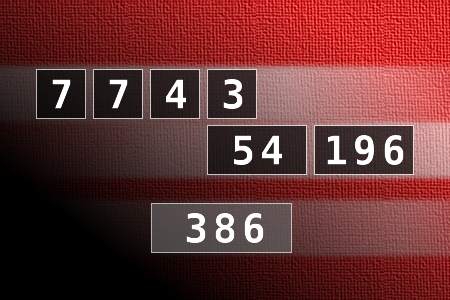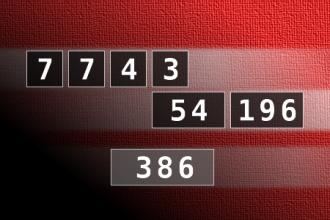Calculate the number 386
NUMBERMANIA: Calculate the number 386 using numbers [7, 7, 4, 3, 54, 196] and basic arithmetic operations (+, -, *, /). Each of the numbers can be used only once.Correct answers: 1
#brainteasers #math #numbermania

Who Should Make the Coffee?
A man and his wife were having an argument about who should brew the coffee each morning. The wife said, "You should do it, because you get up first, and then we don't have to wait as long to get our coffee."The husband said, "You are in charge of the cooking around here so you should do it, because that is your job, and I can just wait for my coffee."Wife replies, "No, you should do it, and besides it says in the Bible that the man should do the coffee."Husband replies, "I can't believe that! Show me."So she fetched the Bible, and opened the New Testament and showed him at the top of several pages, that it indeed says, "HEBREWS."

